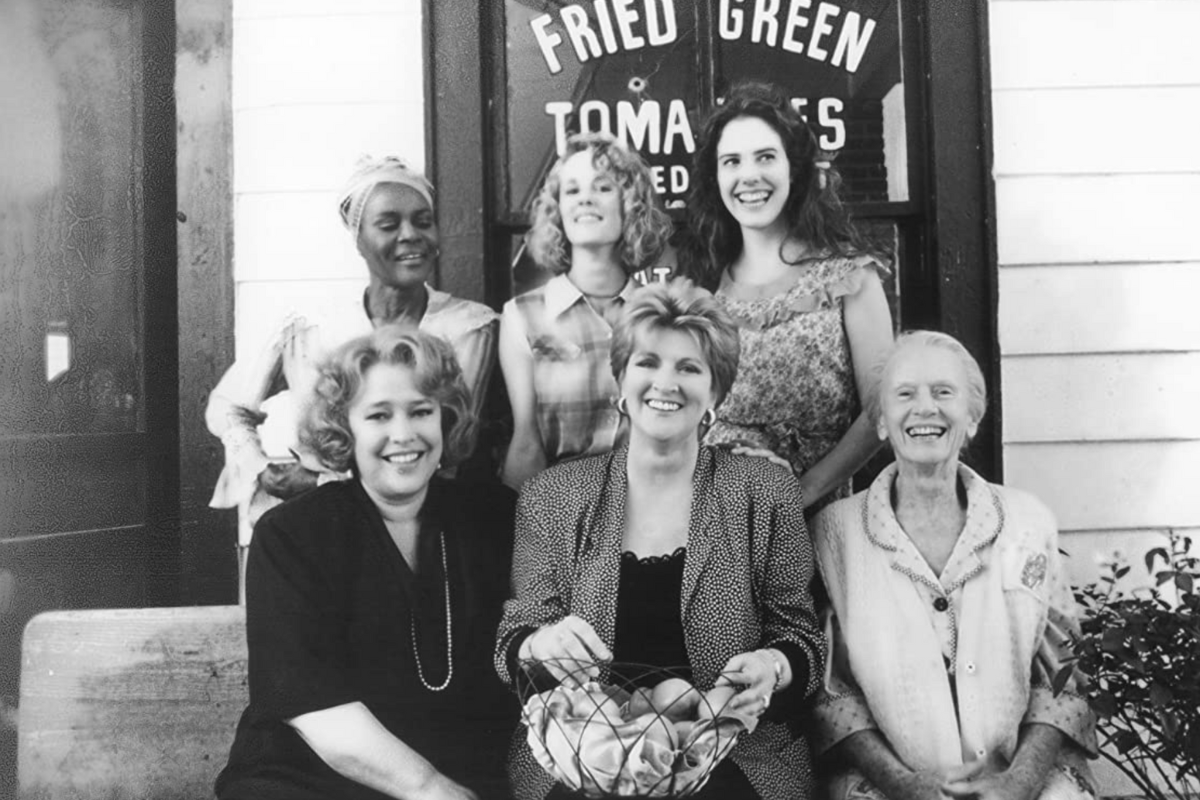
In Fried Green Tomatoes, it’s easy to be captivated by Idgie Threadgoode’s rebellious spirit or Evelyn Couch’s unexpected transformation. Yet, behind every bold voice in the film is a quieter strength, embodied by one of the story’s most poignant characters: Ruth Jamison. Soft-spoken and graceful, Ruth may not command attention the way Idgie does, but her presence is deeply felt. Her character represents a different kind of power — one rooted in compassion, loyalty, and emotional endurance.
Ruth is often seen as the calm in the storm, the nurturing counterbalance to Idgie’s wild energy. But to reduce her to merely a supportive figure would be to overlook the depth of her resilience. Ruth’s life is one marked by hardship, loss, and quiet rebellion. This article explores Ruth’s character in depth — as a survivor, mother, partner, and moral compass — and why her strength continues to resonate with audiences more than three decades after the film’s release.
The Power of Kindness in a Harsh World
While Idgie challenges societal norms with loud defiance, Ruth navigates life’s difficulties with quiet dignity. Her kindness, far from being a weakness, is a deliberate choice — a strength that shines brightest in the darkest moments. In the rigid, judgmental world of the 1920s Deep South, where gender roles are firmly enforced and women are expected to submit, Ruth stands out not by rejecting these norms outright but by transcending them with grace.
Ruth’s compassion isn’t limited to those she loves. She extends empathy to the people around her, including the Black employees at the Whistle Stop Café, customers in need, and even Evelyn decades later through Ninny’s stories. She fosters a culture of inclusivity and care, demonstrating that healing and change don’t always require confrontation — sometimes, they require presence and persistence.
Her approach may not involve explosive rebellion, but it carries profound weight. In many ways, Ruth is the moral heart of the story, guiding others not with force but with love.
A Survivor of Domestic Abuse
One of Ruth Jamison’s most powerful story arcs is her experience as a survivor of domestic violence. After marrying Frank Bennett, she endures physical and emotional abuse in silence — a common and tragic reality for many women of the era. The film handles her trauma with nuance and respect. Ruth is not portrayed as a helpless victim, but as a woman trying to endure for the sake of her unborn child and in the absence of a viable escape.
It’s important to acknowledge the context in which Ruth’s suffering occurs. In the 1920s South, women had little legal recourse against abusive husbands. Divorce was stigmatized, and the law rarely intervened in “domestic matters.” Ruth’s decision to flee Frank with Idgie’s help is not just a personal act of courage — it is radical, even dangerous.
Her escape marks a turning point in the story. Ruth’s bravery in leaving Frank sets off a chain of events that culminates in Frank’s mysterious disappearance — and though the murder is committed by Sipsey to protect Ruth’s child, the act itself becomes a symbol of collective protection. Ruth, despite her trauma, becomes a mother, a caregiver, and a business partner, building a new life in defiance of the pain she endured.
Love That Defies Labels

Though never explicitly labeled in the film due to the social limitations of the era — both within the story and when the movie was released in 1991 — Ruth’s relationship with Idgie is clearly romantic in nature. Their bond goes beyond friendship, rooted in emotional intimacy, mutual protection, and shared purpose.
Ruth’s love for Idgie is tender, steady, and courageous. It defies the norms of the time and offers a rare portrayal of queer love in the conservative South. That she chooses a life with Idgie — even as society might judge or ostracize them — is another example of Ruth’s quiet strength.
Importantly, Ruth is never shown to struggle with her identity in the way that later films might dramatize. She simply chooses to love, regardless of gender, which makes her character all the more powerful. In a world that tries to define and limit women’s roles, Ruth redefines hers on her own terms.
A Mother and Protector
Ruth’s nurturing spirit is most visible in her role as a mother. She gives birth to Buddy Jr. (also affectionately known as Stump), and it’s immediately clear that her love for him is fierce and unwavering. She strives to raise him in a home filled with safety and love — a stark contrast to the violence she fled from.
What’s particularly moving is that Ruth’s motherhood doesn’t exist in isolation. Idgie becomes a second mother to Buddy Jr., and together they form a non-traditional but fully functional family. Ruth allows herself to be vulnerable with Idgie and shares the responsibilities of parenting equally. This act — of trusting and building a chosen family — is a radical departure from the nuclear family ideal of the time.
Moreover, Ruth’s protective instincts extend beyond her son. She becomes a guardian for Idgie’s more impulsive tendencies, helping to ground her and remind her of her emotional value. In her quiet way, Ruth protects Idgie from becoming consumed by rage or sorrow.
A Moral Compass in a World of Gray
The world of Fried Green Tomatoes is filled with moral ambiguity. Characters act outside the law, conceal crimes, and navigate a deeply unjust society. Yet Ruth remains a steady source of ethical clarity. She doesn’t need to shout or grandstand — her integrity speaks for itself.
Even in the midst of the Frank Bennett case, Ruth never advocates violence, nor does she participate in the cover-up. But she also doesn’t condemn those who act to protect her. Her silence is not complicity, but understanding — a recognition that justice doesn’t always follow legal lines.
Ruth embodies a kind of quiet moral leadership. Her life is an example, not a lecture. She teaches others — including Idgie and Evelyn — that dignity and resilience are not mutually exclusive, and that love is the strongest force of all.
The Legacy of Ruth Jamison
Though Ruth’s time in the story is tragically cut short by illness, her legacy lives on — in her son, in Idgie, in the café, and in Evelyn, who draws inspiration from her story decades later. Ruth’s strength doesn’t come from grand gestures, but from the steady, unwavering force of her presence.
In many ways, Ruth Jamison represents the unsung heroines of history — women whose contributions are often overlooked because they are quiet, nurturing, or emotionally intelligent rather than loud and combative. Fried Green Tomatoes honors her by giving her story the weight it deserves, proving that strength takes many forms.
Conclusion
Ruth Jamison may not throw punches or defy laws, but her strength is no less revolutionary. In a society that expected her to remain silent, she chose to speak through love. In a world that tried to confine her, she created new spaces — for herself, for her child, and for the woman she loved.
Her character is a tribute to the power of kindness, the courage of survivors, and the importance of choosing love even when it’s difficult. Through Ruth, Fried Green Tomatoes reminds us that transformation doesn’t always roar. Sometimes, it whispers. And sometimes, the quietest voice is the one that changes everything.
